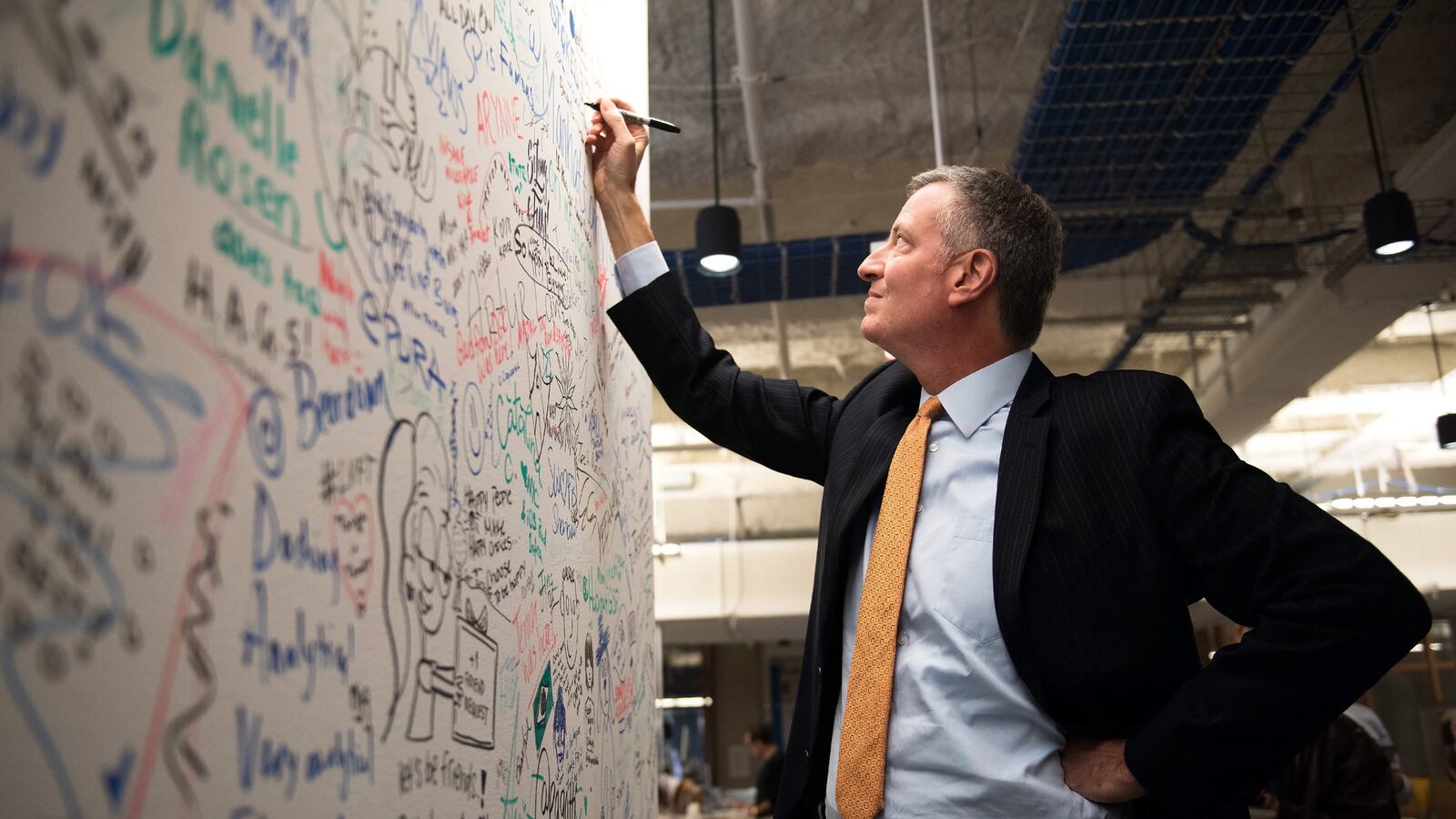New York City’s education world was left spinning Thursday, after Miami superintendent Alberto Carvalho announced he wouldn’t be taking the helm of the country’s largest school district — despite already agreeing to do so.
The about-face stunned onlookers in Miami and New York, including Mayor Bill de Blasio’s spokesman, who tweeted his shock in real time. De Blasio is expected to speak at a press conference later today, but the sudden turn of events means we have more questions than answers.
Here are the critical ones we’re working to answer. We’ve updated this with some answers the the mayor’s office offered on Thursday, and we will continue to add information as we learn more.
1. Will current Chancellor Carmen Fariña be convinced to stick around any longer?
This one we have an answer to: At a press conference Thursday afternoon, de Blasio says Fariña would “be continuing her role until the end of March.”
That means de Blasio is on a tight timeline if he wants to meet the goal he set when he initially announced her retirement in December: for Fariña to continue in her post until the city found a replacement. The 52-year education department veteran has been on a farewell tour over the last few weeks, conducting exit interviews and penning what seemed like her final op-eds.
2. Will the city turn to an interim schools chief?
The circumstances may force it. Speculation had already been mounting that the mayor might have to appoint one as the search process dragged on for months. A city official told Chalkbeat earlier this week that City Hall was prepared to name an interim for a very short transition period — but only after a permanent appointment was announced.
One obvious choice for an interim is Senior Deputy Chancellor Dorita Gibson. Gibson is the education department’s second in command and has held many positions in the city’s school system, including principal and superintendent. But she has also kept a relatively low profile, which raises questions about whether she will be chosen to fill such a public position even temporarily.
“We’re going to have a new chancellor soon,” de Blasio said Thursday. “That’s all I want to say about it.”
3. Who’s next on City Hall’s chancellor candidate list?
That’s the million-dollar question. Barbara Jenkins, the superintendent of Orange County Public Schools in Florida, has been floated as a potential candidate. But questions have also been raised about whether she wanted the job and was criticized by Randi Weingarten, the leader of the American Federation of Teachers.
Other names in the mix include Kelvin Adams, the superintendent of the St. Louis public schools, whom Weingarten said she supported.
Regent Kathleen Cashin, a former superintendent in New York City, and State Education Commissioner MaryEllen Elia have also been mentioned in conversations about Fariña’s successor. However, both seem unlikely choices and do not fulfill the de Blasio administration’s desire to find someone outside of New York
4. Will anyone want the job now, and what will they demand to be paid?
De Blasio attempted to project confidence on Thursday. “There has been a huge amount of interest. There are a lot of great candidates,” he said.
But Carvalho’s stunning announcement will undoubtedly make the next phase of the search process challenging. It will be clear to the next batch of candidates that they were not the top choice. The media circus Thursday will attract more attention to the pick, and may not inspire confidence in the de Blasio’s administration’s ability to sell the job or retain top leadership.
On top of that, the mayor might have to pay the new candidate more than he otherwise would have.
The $353,000 salary New York City publicly offered Carvalho — and what any chancellor candidate will now likely demand — would put New York City on the competitive side of other urban districts. New York City has historically paid its chancellors less, with Fariña’s base salary coming in at $234,569. (She made far more in total thanks to her pension.)
That higher salary makes New York more competitive with the second-largest school district in the country, Los Angeles Unified, which is also looking for a new leader and paid its previous superintendent $350,000.
On Carvalho’s salary, de Blasio said, it was “perfectly legitimate for people to say, hey, wait a minute, I’m being better compensate for a much smaller school system – what’s wrong with this picture?”
“In this case, his request was for us to consider a matching current salary, we thought that was fair.”
5. Does this change how de Blasio will conduct the search?
It doesn’t appear likely.
From the beginning, de Blasio committed to conducting a search behind closed doors. While he argued the secrecy is important to keep personnel decisions above the fray of politics, many parents and advocates have expressed frustration about the lack of public input. Now, that his initial behind-the-scenes deal has combusted, some are hoping the mayor will choose a more transparent path as he recruits the next candidate.
Some advocates are already jumping at the chance to call for a new open process.
“After this disappointment, Mayor de Blasio has an obligation to lead boldly with a transparent, inclusive process,” said Evan Stone, co-founder of the teacher advocacy group Educators for Excellence in a statement. “He can begin that process today.”
Mark Treyger, chairman of city council’s education committee, said that City Hall had not briefed him ahead of time about Carvalho. After this morning’s news broke, he sent what appeared to be a warning shot that de Blasio should embrace a more open process now.
“In order to make well-informed decisions, you have to involve critical stakeholders,” he said in a statement. “I look forward to being a part of the conversation regarding who will eventually accept the position of Chancellor of the largest school system in the country.”
Alex Zimmerman contributed reporting

